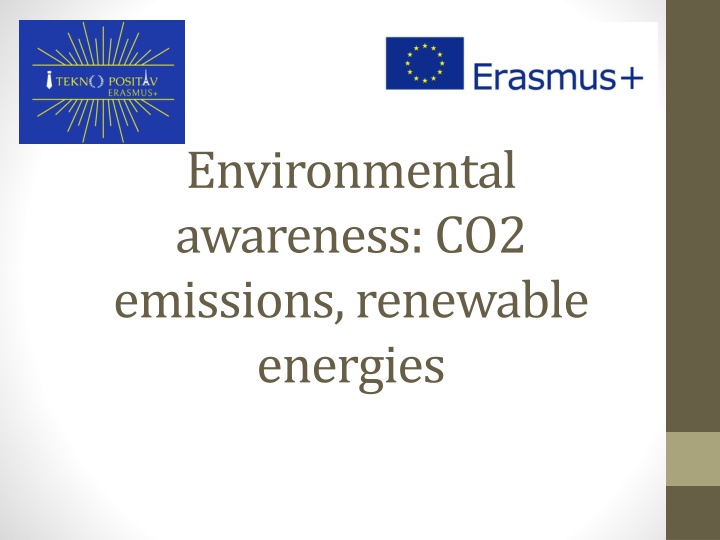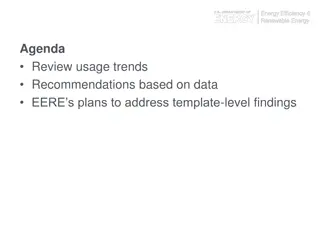
Advancing Environmental Sustainability: Key Concepts and Practices
Explore key concepts such as environmental awareness, social corporate responsibility, sustainable development, ecodesign, ecolabelling, energy efficiency, green consumerism, and renewable energy sources. Learn how businesses can be accountable to society and the environment while promoting sustainable practices.
Download Presentation

Please find below an Image/Link to download the presentation.
The content on the website is provided AS IS for your information and personal use only. It may not be sold, licensed, or shared on other websites without obtaining consent from the author. If you encounter any issues during the download, it is possible that the publisher has removed the file from their server.
You are allowed to download the files provided on this website for personal or commercial use, subject to the condition that they are used lawfully. All files are the property of their respective owners.
The content on the website is provided AS IS for your information and personal use only. It may not be sold, licensed, or shared on other websites without obtaining consent from the author.
E N D
Presentation Transcript
Environmental awareness: CO2 emissions, renewable energies
Social corporate responsibility It is a self-regulating business model that helps a company be socially accountable to itself. Companies can be conscious of the kind of impact they are having on all aspects of society, including economic, social, and environmental.
Sustainable development It is the organizing principle for meeting human development goals while simultaneously sustaining the ability of natural systems to provide the natural resources and ecosystem services on which the economy and society depend. It can be defined as development that meets the needs of the present. Examples: Podravka, Henkel
Ecodesign Ecodesign is the philosophy of designing physical objects, the built environment, and services to comply with the principles of ecological sustainability. Examples: EKO-PROJEKT d. o. o .
Ecolabelling Ecolabelling is a voluntary method of environmental performance certification and labelling that is practised around the world. Examples: Oikon, EKO TOP
Energy efficiency Energy efficiency simply means using less energy to perform the same task that is, eliminating energy waste. Examples: HEP ESCO d. o. o ., REFLEX d. o. o.
Green or ethical consumerism It refers to a state in which consumers demand products and services that have undergone an eco-friendly production process or one that involves recycling and safeguarding the planets resources. It entails: production, promotion, advancement of the utilization, services based on their pro-environment benefits.
Renewable sources of energy Renewable sources of energy generate energy that produces no greenhouse gas emissions from fossil fuels and reduce some types of air pollution. Besides, they can create economic development and jobs in manufacturing, installation and more Here are few examples of companies that use renewable sources of energy :
Types of renewable sources of energy solar energy wind energy hydroelectric energy biomass energy geothermal energy
What is the difference between renewable and nonrenewable sources of energy ? Nonrenewable energy resources like oil, nuclear, coal and natural gas are available in limited supplies. It is usually due to the long time it takes for them to be replenished Renewable resources are replenished naturally and over relatively short periods of time
More and more companies around the world aim to reduce their consumption of nonrenewable energies and try to use more and more renewable energies for the planet Here are few examples of these companies :






















